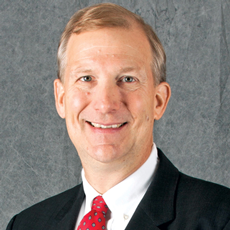
When I list traits of a great leader, there are a few non-negotiables. Cool under fire. Frank with the facts. Optimism-driven.
That means a torch under the boss’ behind doesn’t lead to reflexive butt-kickings down the line. It also means if the situation isn’t ideal, it doesn’t get sugarcoated. It’s easier to figure out solutions, after all, when all the facts are on the table.
And there is always the kindling of hope. That one’s not always so easy, given the other stipulations above. But ultimately, a leader needs to be uplifting.
Thursday afternoon, one of long-term care’s great leaders calmly put all of the above on display. In doing so, he made one thing all the clearer: Board members of the American Health Care Association / National Center for Assisted Living are, to put it honestly, in a big bind.
How are you ever going to find someone to follow in President and CEO Mark Parkinson’s footsteps, whenever it is he decides to walk away from the job?
It took Parkinson just a few ticks more than three minutes to masterfully display all of the characteristics above in a heartening video message to members. Labeled an update on the omicron virus and the road ahead, it’s must-see viewing for any long-term care stakeholder.
After the last two years you’ve been through, you deserve to see this clip, no matter where you send your professional dues or place your “X” in the voting booth.
So what did the leader of the nation’s largest nursing home association do? With the air of an earnest fireside chat, top button slightly undone behind knotted tie, he soberly recounted warning just six weeks ago that the new, omicron variant could cause havoc. It did, he acknowledged, quickly adding that the numbers now make him as “optimistic as I’ve been in a long time.” Case rates are dramatically down in some of the earliest states to feel its wrath, such as New York, New Jersey, Massachusetts and “even Florida.”
Omicron is definitely less fatal than others have been over the last two years, he pointed out. Authorities say that a person fully vaccinated against COVID-19 is at less risk of being hospitalized or dying than someone who gets the regular flu, he added.
Good timing
This could be the “beginning of the end,” he dangled. Variants become less fatal as time goes on, as history has taught about other pandemics, he reminded. Eventually, people have to learn to live with whatever risk remains.
He said the optimist in him hopes that is what will happen. But he did not irresponsibly predict or guarantee 100% sunny days ahead. He candidly allowed that a future variant still could maneuver around vaccinations and other defensive measures, though he doubted it. Maybe it was some of the old political pragmatism he honed in another life while running the state of Kansas as governor.
It was cool. Clear. Confident. It came in the dead of winter, at a much needed time
It’s more probable than not we will soon have a virus we can cope with and the profession can clinically recover, he told his weary audience. Then it will be time to recover on the business side.
It’s time to look forward to getting workers and census back to healthy levels so the profession “can move forward,” its top spokesman said. Related with candor and humility, it was worthy of any of the many polished national television interviews he’s given over the last two years. It was during one of the first of those that he coined COVID-19 “almost a perfect killing machine” for the elderly. Sadly, he was right. The virus has killed hundreds of thousands of elderly in the U.S. alone and ravaged his members’ workplaces.
He closed by qualifying that he could be right or wrong about his vision for the future.
But it’s fair to ask: How can anyone feel what he said was anything but “right”?
Take a look for yourself.
You’ll see a leader who’s going to be awfully tough to replace.
James M. Berklan is McKnight’s Long-Term Care News Executive Editor.
Opinions expressed in McKnight’s columns are not necessarily those of McKnight’s.



